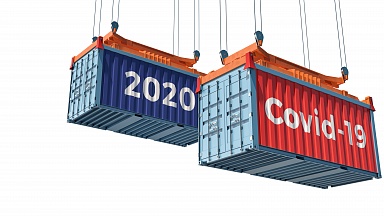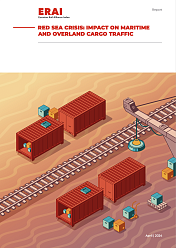Construction commenced at the end of last week following a launching ceremony. KTZ commented that plans include building «modern warehouses using temperature control technology and covering a 1,400 square metres area, and class „A“ warehouses for storing packaged unit cargo and e-commerce cargo covering a 36,000 square metres area.» The company also mentioned that «the Chinese side proposed using the capabilities of robotic warehousing.»
On top of the warehousing facilities, the terminal will also have a container platform of 12,000 square metres that will operate with an electric gantry crane with a lifting capacity of 50 tons.
Enhancing handling capacity Almaty is already well known within the Eurasian rail logistics world since it is one of Kazakhstan’s main Silk Road hubs, crucial for cross-border traffic with China and consolidation with other destinations. KTZ and Xi’an Dry Port expect that with the construction of the new terminal in Almaty, they will increase the area’s train handling capacity. Additionally, another expectation entails the terminal becoming a consolidation centre for trains arriving from multiple Chinese destinations.
«The implementation of the project aims at expanding the capabilities of the cargo terminal infrastructure, which will further allow storing and processing significant volumes of cargo in temporary storage warehouses, increasing cargo processing time, which directly affects the timely delivery of goods, as well as meeting the needs of the market, especially the e-commerce market,» commented the two partners.




